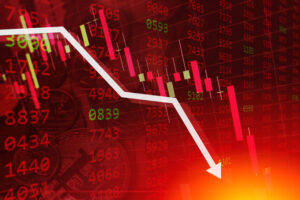Rosenberg: We Are in A Depression
The comments below are an edited and abridged synopsis of an article by John Mauldin
Disney is cutting 28,000 workers; American Airlines and United Airlines are cutting 31,000. A disappointing unemployment report shows that the US has a long way to go.

These sectors supported 32 million jobs before the crisis, about a third of the private sector workforce, and it looks like 50% won’t be returning. Many do not understand that amusement parks, airlines, hoteliers and restaurants cannot stay in business at 50% capacity, or even 75%.
Many small businesses (25%) have already shut down. Two-thirds are nervous about leaving their homes; 59% intend to remain locked down until Covid-19 is contained. Most households (85%) wouldn’t get on an airplane even if they could.
Only 56% of consumers will shop at the supermarket. Only 33% are comfortable entering a retail store. A mere 22% are willing to dine indoors at a restaurant.
This is a vertical-down economic decline with job losses higher than anything since the Great Depression. We face an uncertain economic future. And unfortunately, most of the longer-term risks are to the downside.
This is a depression, the dynamics of which are different than a recession; they invoke a secular change in behaviour. Classic business cycle recessions are forgotten soon after they end; the scars from this one will take longer to heal.
Even though the US unemployment rate has abated, it is largely due to a drop of almost 700,000 in the labour force. Just over half the jobs lost between February and April have been regained. The pace of gains slowed for the third consecutive month and looks to get slower.
There will be a recovery. The entrepreneurs who closed their businesses will open new ones, but not in six months. Where will they get capital? It’s one thing to bail out airlines with billions of dollars, but the local bakery with 15 employees? Where do they get the capital to reopen when the time is right?
That which can’t go on, won’t. The US can’t keep piling on debt at this rate, and it can’t repay what it has.
Mauldin predicts an unprecedented crisis that will lead to the biggest wipeout of wealth in history, and most investors are completely unaware of the pressure building right now.
